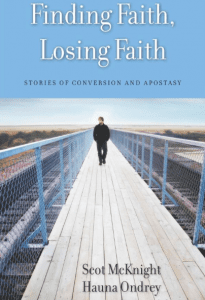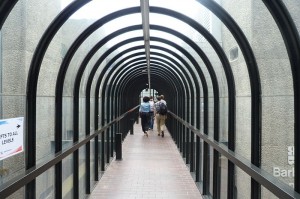Slate’s interview, by Kathryn Schulz, with Chuck Colson breathes a wonderful spirit of grace. I don’t always agree with Colson on his politics or his approach to apologetics, but Colson’s got the big tent in mind, and he centers on the centrals.
Colson’s a classic example of a convert who returns to the previous world with a new way of life. What do you see in Colson?
I clip two questions and answers from Colson:
When you think about that person now, how do you feel about him? Do you identify with him, do you see yourself in him?
I can’t imagine I lived the way I did. I cannot imagine. I shudder when I think about it, because I feel so totally differently about life. Now, please don’t get the impression that somebody who’s a really bad guy and then all of a sudden finds Christ, the next day he’s a saint. It doesn’t work that way. I’ve been 37 years as a believer in Jesus Christ, and I’ve discovered that every year you grow a little more than the year before. It isn’t like all of a sudden you turn a switch and you go from A to B. You do in one sense, because your whole worldview is very different; you realize you’ve got to see things the way God sees them, not the way you do. So that part changes fast, but it doesn’t immediately reflect itself in how you live. That part takes time….
Then Colson is asked about prison ministry.
What was it about your experience that inspired that decision?
When I was in prison, I saw the absolute futility of the prison system. There’s no way you can take a bunch of criminals, stick ’em in a dormitory where they sit around at night comparing the crimes they committed and how they’re going to do it next time, and expect to rehabilitate them. It’s demeaning, it’s demoralizing, it doesn’t give people aspirations to do the right thing. It almost encourages the wrong thing. So I got out of prison and I realized: This isn’t working.
That’s what got me to start the prison ministry. But as I was trying to put Bible studies in all the prisons, they were growing so fast I couldn’t keep up with them. The figures were astounding. When I got out, there were 239,000 people in prison. Today there are 2.3 million. So I started asking myself, “Why is this happening?” The prevailing view well into the 1970s was that crime is caused by environmental factors—by dysfunctional childhoods, by racism, by poverty. So the criminals became victims, victims of society, which to me didn’t make sense. Then I came across two people who were doing studies on criminal behavior, and they came to the conclusion that crime is not caused by environment or poverty or deprivation. It is caused by individuals making wrong moral choices, and that’s exactly what I was experiencing working with thousands of prisoners. So I got in touch with those guys and learned a lot from them.










